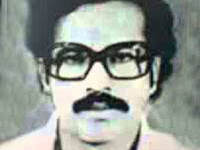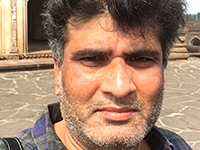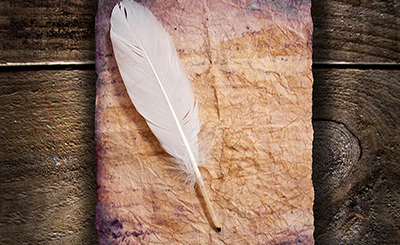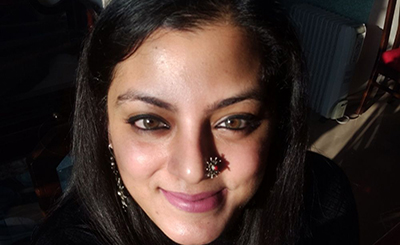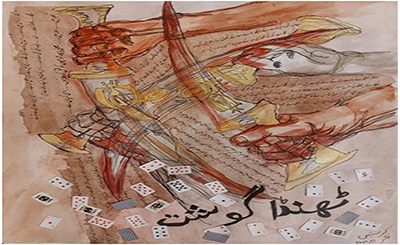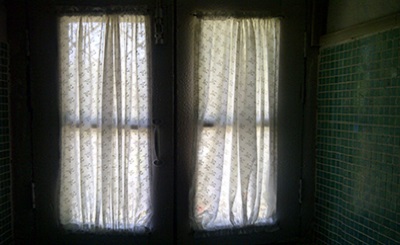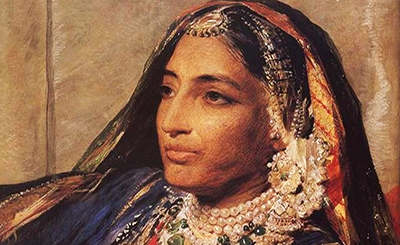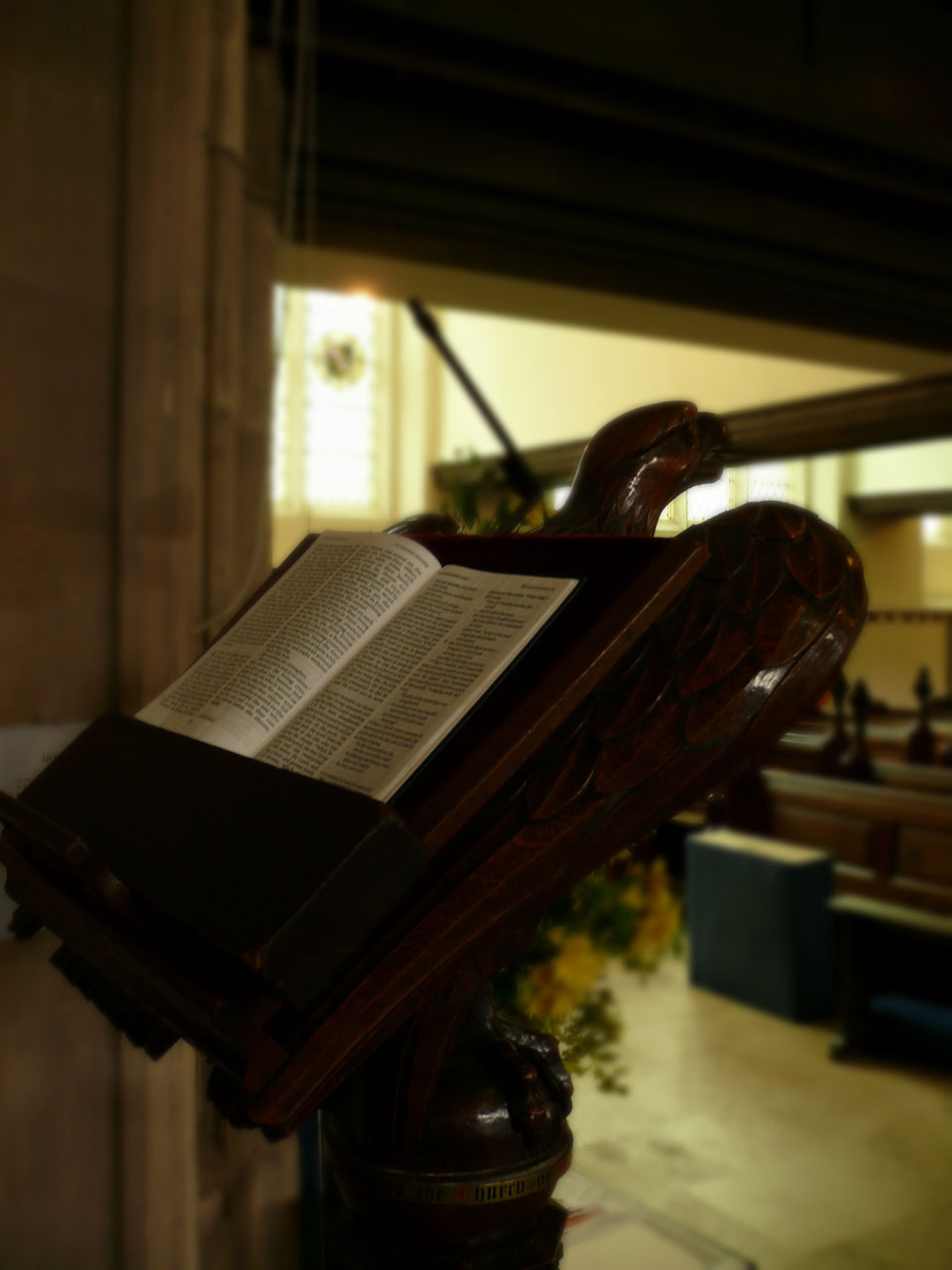
In the Midst of Words
In a fraction, they inundated the planet with words
they know well the art of stretching decisions and distances
ships are docked in the harbor
and in houses, warehouses, shops
there is no space left for a single word
so many words — Oh God!
I have walked on this earth for twenty-eight years
Amidst father, mother, sisters, brothers, and beloveds
amidst humans
I saw
For praises, introductions, and commiserations
they have quivering lips
have moist eyes
have warm heartfelt palms
they are in no need of eloquence
the baker hums
does not need words
just a trough — to knead the dough a cookingboard —
to make balls of leavened bread a skewer —
to take out roti from the clay oven baker,
once you are done working, come to me here,
on the shore, a reedforest has sprung up by itself
I have fashioned some reed pens
and a flute —
with the remaining reeds, I have crafted a canoe
shepherds, farmers, artisans, musicians, blacksmiths
all are ready
I have preserved some sounds in the canoe
The schoolbell —
a lullaby
and a benediction
nothing more than these is needed to survive on a new uncharted land
(Original Urdu Poem titled, “Lafzoñ Ke Darmiyañ,” from Aadhe Sayyare Par in Sarwat Hussain, Kulliyat (Karachi: Aaj ki Kitabeiñ, 2015), 47-48)
A Poem Could Begin From Anywhere
A poem could begin from anywhere
From a pair of shoes
Or from a grave which caved in during the rains
or from the flower that sprouted on the grave’s base
each one found a refuge somewhere
ants, beneath the prayer mat
and girls, in my voice
a squirrel has created a shelter in the skull of a dead ox
poetry too shall have a home
the heart of some exile or waiting eyes
is a wheel left incomplete by its maker
only a poem can complete it
a reverberating sky is not adequate for a poem
but a poem could easily fit into a breakfast tiffin
flowers, tears, and tinkling bells could be threaded into it
it could be sung in darkness
could be taught in the warm sunlight of festivals
you could see it
in empty vessels, bare chemises, and vacant cradles
you could hear it
walking along with handcarts and biers
you could kiss it
in the swarm of seaports
you could knead it
in a stone trough
you could grow it
in the garden beds of fresh mint
a poem
cannot be made darker than nights
cannot be severed by any sword
cannot be caged in any wall
a poem
could desert you anywhere
like a cloud
Like air
Like a path
like father’s hand…
(Original Urdu Poem titled, “Ek Nazm Kahiñ Se Bhi Shuroo’ Ho Sakti Hai,” from Aadhe Sayyare Par in Sarwat Hussain, Kulliyat (Karachi: Aaj ki Kitabeiñ, 2015), 2223.
This Song Is Your Dwelling
Deeper than eyes
warm, golden, as rays
lustrous, fresh, as voices
unfathomed, as stars
this song — is your dwelling
(Original Urdu Poem titled, “Yeh Geet Tumhara Ghar Hai,” from Aadhe Sayyare Par in Sarwat Hussain, Kulliyat (Karachi: Aaj ki Kitabeiñ 2015), 27.
On The Shore Of A Song
I, on the shore of a song; unbound lands of sorrow, happiness and dreams on the other side; one after
the other blooming stars in the twirls of tendrils spreading rising, and portals opening onto the visage
of the song; sunlight on the song’s shore; cattle, and hearths alight in humble huts; muddied mornings
of frolicking, dust raising kids; evenings wetted with rain showers of sweet slumbers; as if enduring
and flowing in from faraway places, rivulets of songs pour into songs
(Original Urdu Poem titled, “Geet Ke Kinare Par,” from Aadhe SayyarePar in Sarwat Hussain, Kulliyat (Karachi: Aaj ki Kitabeiñ, 2015), 41.
Horse’s Death
I saw a horse dying
What did the dying horse see: a tar coal pavement —
a drifting piece of paper or a coin which had slipped from a child’s palm
or that forest where together with water and birds he
had opened his eyes
or that day when a man had first seen him
it will rain on the decomposed decayed skeletal frame
the horse — shall take one more birth
in the coachman’s heart
or in a poem —
(Original Urdu Poem titled, “Ghode Ki Maut,” from Aadhe Sayyare Par in Sarwat Hussain, Kulliyat (Karachi: Aaj ki Kitabeiñ, 2015), 78.
Earth’s Rhythm
earth’s rhythm sunlight, river, white horse’s neighing, birds waning, rose’s fiery chalice, stretched
shadow of a sculpture, darts of drum chants in fables’ abysmal wilds, flowers and petals of an ancient
sun in the amazement of the ones descending into the dark waters of symbols
(Original Urdu Poem titled, Zameeñ Ka Ahañg ”from Aadhe Sayyare Par in Sarwat Hussain, Kulliyat (Karachi: Aaj ki Kitabeiñ, 2015), 79.
Death of a Fountain
water's song hushed
the fountain dusted with sand
rosebuds kept on withering
the birds now did not descend
no one went into mourning
save the poet…
(Original Urdu Poem titled, “Favvare Ki Maut,” from KhaakDan in Sarwat Hussain, Kulliyat , Karachi,
Aaj ki Kitabeiñ, 2015, 209)Poetry Has Turned Away from Me
poetry has turned away from me
the sky is silent, the earth does not speak
flowing water isn’t acquiescent to any hope
no word, no portal invokes liking
how to bring news of estranged people
how to bring a fractious person home
the honeybees swarm to the flowers
I count trees next to a fountain
(Original Urdu Poem titled, “Shayari Mujhse Rooth Gayi Hai,” from KhaakDan in Sarwat Hussain, Kulliyat (Karachi: Aaj ki Kitabeiñ, 2015), 210.
Noon’s Empire
In noon’s empire
a ringdove coos something
life spreads its wings
stepping out of slumber
I tasted her lips
laid some flowers on the mirror
in noon’s empire
(Original Urdu Poem titled, “Dopahar Ki Sultanat,” from Khaak Dan in Sarwat Hussain, Kulliyat (Karachi: Aaj ki Kitabeiñ, 2015), 219.
Blue Line
from Time primal, you are in flow, Indus
come close
narrate to us those sagas that visited you on this journey
in the grainhouse
has unfolded the cloth spread of your bounty
O! Great Indus flowing south
Benedictions to you for the melting of the northern snows
Your cultivated shores are calling out to eternity
our seafarers and fishermen intone melodies in your love
a blue line that runs smiling on the earth’s configuration
is singing a song of union
(Original Urdu Poem titled, “Neeli Lakeer,” from Khaak Dan in Sarwat Hussain, Kulliyat (Karachi: Aaj ki Kitabeiñ, 2015), 223
The Seed of Love
Listen O Birds! Years ago right here at this place
I had sown a seed of love; shore’searth
the shore’s rich earth was vexed; there was breeze
but in this place, I had sown a seed of love
Listen O Birds!
this silent paradise of raining blossoms, verdant arms
is it not the sky of the seed lost years ago?
the one I had forgotten, is it not that fable?
(Original Urdu Poem titled, “Muhabbat Ka Beej,” from KhaakDan in Sarwat Hussain, Kulliyat (Karachi: Aaj ki Kitabeiñ, 2015), 224.
Liquescent Thoughts
in the enchantment-river of liquescent thoughts
the boat has been ready since long; stars
do be a little alert, I’ll be back; beckon
the planet is like a ruddy gem
will the people not gather for us
in the enchantment–river of liquescent thoughts
(Original Urdu Poem titled, “Sayyal Khayalat,” from KhaakDan in Sarwat Hussain, Kulliyat (Karachi: Aaj ki Kitabeiñ, 2015), 239.
Distressed Angel
distressed angel looks for his wings; the night is dark
resembling an Abyssinian immersed in continual circumambulation of the Ka’aba;
ask the swallows: where, at which place, is the angel’s wing; on a mirror or
in the pale water of a well; in an infant’s eyes; did a
river wash it away or the night’s cloudy star
pour out the ruddy wine of faith and sagacity; drink and sway away;
the tears of the fountain have gushed out in the garden of paradise
(Original Urdu Poem titled, “Shikasta Par Farishta,” from Ek Katora Paani Ka in Sarwat Hussain, Kulliyat (Karachi: Aaj ki Kitabeiñ, 2015), 320.
Prior to Sleep
you sprang to memory at dusk
when twilight’s first star
shone far in the sky
and my heart began to glow like a lamp
you sprang to memory
leaves falling
on an earthen pitcher
children creating an uproar
making flowers
on wet earth
and returning
to their own doors
and in mother’s eyes
discovering the evening star
and sliding into sleep
(Original Urdu Poem titled, “Neend Se Pehle,” from Ek Katora Paani Ka in Sarwat Hussain, Kulliyat (Karachi: Aaj ki Kitabeiñ, 2015), 328
More from The Byword
Comments
*Comments will be moderated



